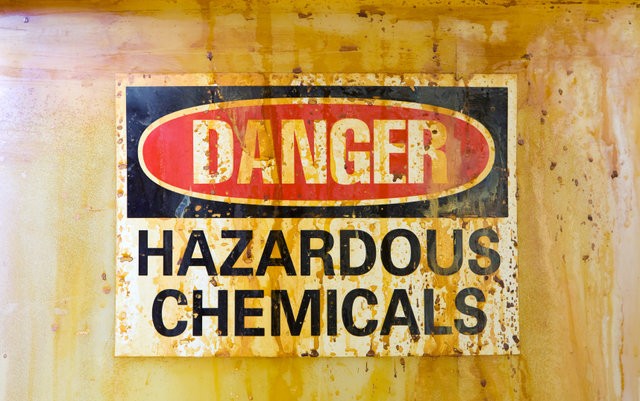2015 was a complicated and tumultuous year for the marijuana industry. The main cause of which was the amount of attention that has been directed at the issue of pesticide use and its improper application on marijuana plants. Although it’s a concern being addressed in each of the “green” states, the greatest commotion has come out from Colorado.
It all started with a routine fire safety inspection conducted by the Denver Fire Department that took place back in March of 2015. While performing their inspection, they realized that there were a variety of pesticides being used improperly. Dan Rowland, a city spokesman, explained to The Denver Post, “There (is) clear language on the labels to guide their usage, saying it’s not for indoor use, or that the product isn’t intended to be used on items grown for human consumption — like marijuana.”
The result? Over 100,000 plants from 6 grow facilities were put on hold until further testing could be conducted and a seemingly bottomless can of worms was ripped open.
Colorado’s latest, and largest, recall took place just less than 2 weeks ago on December 30, 2015. An edibles company, by the name of Mountain High Suckers, recalled 99,574 packages of it’s suckers, lozenges and powdered candy after finding that some of their products had tested positive for 2 banned pesticide chemicals. This makes for the 15th recall in 16 weeks.
If you’d like to read more about each recall, The Denver Post and their sister publication, The Cannabist, have compiled a list of both media coverage and city press releases that you can check out here.
So what are these dangerous pesticide chemicals and what is the state of Colorado doing about the issue?
The 3 most commonly found pesticide chemicals are Myclobutanil, Imidacloprid and Abamectin and the avermectin chemical family. Myclobutanil is a fungicide and is the active ingredient in Eagle 20, a popular brand of pesticide. Myclobutanil is considered to be “slightly hazardous” by the World Health Organization, is referred to as a “bad actor” by the Pesticide Action Network. The products label even offers a warning of possible nervous system problems as well as toxic fumes. Imidacloprid is an insecticide chemical in the pesticide brands, Merit and Mallet. The World Health Organization considers it to be “moderately hazardous” and the National Pesticide Information Center has established that it’s “moderately toxic if ingested or inhaled.
Abamectin, and the avermectin chemical family, is an insecticide found in the pesticide brands Avid and Lucid. The Pesticide Action Network also lists avermectin as a “bad actor” and the label for the product Avid states that it is “harmful if inhaled”.
Before we look into what efforts Colorado is making to remedy this issue, we need to take into consideration a few important details. First of which is that there is little to no guidance being offered by the federal government on this issue. Why? It has to do with that whole thing about marijuana still being federally illegal and all. For that same reason, there isn’t a sufficient amount of research on cannabis and pesticides to give us a very clear picture. I mean, some of these pesticide chemicals are allowed on food items but none of them are consumed the way marijuana is. Also, the amount of chemical residue being found on marijuana products far exceeds the threshold that is allowable on food items. So there’s no research and nothing we could as an accurate comparison with.
Right, so, what are they doing about it? Well, to put it simply, they’re still figuring out what to do long term. But in the meantime, farmers have been restricted to products whose labels are so broadly written the state decided they were allowed to be used on marijuana crops. In October of 2015 a set of rules was proposed that would only allow the use of pesticides that are considered to be the least dangerous and are currently being used on tobacco and other consumable crops. It has yet to be put into effect, but it’s a step in the right direction. For now though it looks like the testing and recalls are just going to have to continue. What happens to those recalled products anyway? Colorado Governor John Hickenlooper has issued an executive order stating that any marijuana that been grown using forbidden pesticides is to be pulled from the shelves and destroyed.
It’s easy to look at a situation like this, feel as though it’s entirely negative or hopeless and assume disaster is just around the corner. I prefer to gaze through a more positive lense though. Whether it’s a small business gaining traction, a large corporation entering a new market, or an industry in its infancy, one thing is guaranteed. Growing pains. We all knew that the legalization of medicinal and recreational marijuana would come with a plethora of complications and growing pains. This pesticide issue just happens to be one of them. We can, and should, be grateful that state regulators are looking for a ways to remedy the situation. All too often there’s nobody at the other end of the complaint hotline. As a concerned consumer you can get involved and voice your opinion on the matter; there are people listening this time. Don’t take that for granted. If you’re worried about possible dangers to your health, you have 2 options: Research the source of your medicinal herbs or grow your own.
The marijuana industry has a pesticide problem. That’s no secret. Do you agree that this pesticide problem will get worked out? Have any ideas on how to “easily” address the problem in a way that’s fair to the farmers but also ensures the public is protected from these harmful chemicals? Please, voice your thoughts and opinions in the comments below! If there’s something you’d like to learn more about don’t hesitate to ask.






